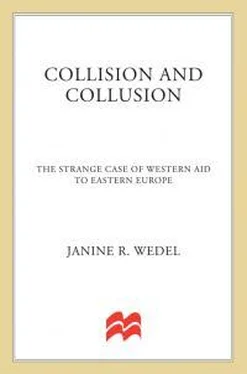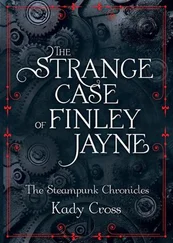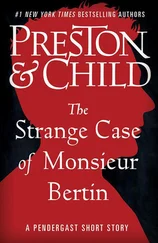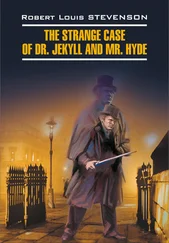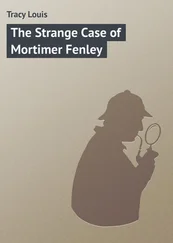Endowment funds were used to provide supplies and equipment for the independent publishing movements in Poland; to sustain independent publications as well as independent cultural, human rights, and political organizations in Czechoslovakia; to provide Hungarian dissidents with paper and ink to publish their journals during the period before the opening; to support regional initiatives and transnational cooperation among democratic movements throughout the region through the Multinational Fund for Friendship and Cooperation in Central and Eastern Europe, a movement of democratic activists themselves; and to provide communications technology and knowledge to the emerging independent publishing and press groups in the Soviet Union.28
In 1989, with the collapse of communism in Central and Eastern Europe, the West affirmed its support of the new noncommunist politicians and leaders who would shape the direction of Central and Eastern European states. The flood tides that had swept away the communist regimes brought unprecedented opportunities—and obligations—into the hands of the heroes of resistance. The communists’ fall from power left a vacuum in many areas of public life, from finance and foreign affairs to health and social services. (Of course, a few years later the communists had reassumed power in Poland and Hungary and also had enriched their roles in the private economy.) And a multitude of new institutions had to be created: financial and regulatory systems, ministries of privatization, and independent news organizations. With the old guard gone overnight, a small group of trusted and untainted new leaders had to staff the old posts and to identify, create, and fill the positions needed to shape the new environment. Western donors were eager to participate in this process and especially to support people who had name recognition as heroes of the revolution.
The U.S.-funded NED already mentioned, which distributed nearly all the SEED money allocated by the U.S. Congress for “democratic institution building” in 1990, was an important case in point. NED supported the new democratic leaders by funding their political parties and groups. Under NED, the NDI and the NRI, as well as the International Foundation for Electoral Systems and other organizations, provided training and assistance to political parties.29
In Hungary, these organizations financed emerging political parties, notably the Alliance of Free Democrats. The support was intended to “help to shape political public opinion in Hungary during this transitional period, through publications, seminars, and lectures on democracy. Communication and interaction among the alliance’s network throughout the country [was] also [to] be strengthened.”30 In Poland, NED financed the Citizens’ Committees—the local and national fora under which most of the pre-1989 opposition organized itself in 1990-1991.31 The Citizens’ Committees were major recipients of U.S. political aid to the opposition in Poland and had at their disposal significant political, diplomatic, and media support, particularly from Radio Free Europe—assistance that proved pivotal.32 And, in Czechoslovakia, NED provided organizational support for the political party Civic Forum,33 which appears to have given it advantages vis-à-vis other groups throughout the Czech and Slovak political spectrum. A number of private funders also provided decisive support to political parties: The New York-based Freedom House, for example, provided direct assistance to political parties in Poland and Hungary, while the Andrew W. Mellon Foundation supplied funding in Czechoslovakia. The national foundations of George Soros generally were directed by his longtime associates and boards made up of former dissidents often involved in political, not only intellectual, pursuits.34
The groups that the West chose to fund in the early 1990s tended to include high-profile activists who had been visible in the West in the 1980s. One such individual was Adam Michnik. Under communism, Michnik was an historian and influential intellectual of a prominent Polish Opposition group. After communism, he was editor-in-chief of Gazeta Wyborcza and, for a short time, an active politician. Long before Solidarity existed, the youthful Michnik jeopardized his freedom to oppose the communist regime. When, in 1980, the entire nation rose up behind Solidarity, he assumed leadership and authority. And 18 months later, when General Wojciech Jaruzelski imposed martial law and outlawed Solidarity, Michnik sat in a prison cell. He wrote essays for the New York Review of Books that conveyed both the mean atmosphere of Poland under martial law and its undaunted spirit of hope and resistance.
Now, with communism fallen, Poland seemed like a blank slate. Michnik became involved in innumerable activities to put his country on a democratic course: Having helped select the leaders of Central Europe’s first noncommunist parliament, he sat in the Polish Sejm and served as a leader of the powerful political movement Citizens’ Movement for Democratic Action (ROAD), which had been started by the faction of Solidarity that grew out of the non-nationalist wing of the Opposition. Michnik was also an effective fundraiser and proved himself as an organizer not only of political action, but of institutions that had inescapably economic aspects, such as his newspaper.
Revered by Western intellectuals, Michnik met with dozens of visitors. In the early years of transformation, he became the darling of many Western foundations. Many resources went to support the projects of people in his circle. Gazeta Wyborcza, the first independent daily in Central and Eastern Europe, received grants from a number of Western sources, including a grant of $55,000 in 1989 from the U.S. government (through NED and the Polish American Congress Charitable Foundation).35 Such sums went a very long way in Poland at the time.
Despite Michnik’s talents and image in the West, not all of his countrymen were so admiring and impressed. At the same time he was writing essays celebrated in the West, some Polish critics said that he and those like him were building their careers on their reputations in and sponsorship from the West, and that the extensive contacts and support over the years gave them unfair advantages. Politicians outside what they perceived as the favored group, such as Piotr Wiśniewski of the Polish Socialist Party (PPS), a leftist party, were unhappy with this state of affairs. And Zbigniew Rykowski, associated with an opposing right-wing political group, characterized the Soros-created Stefan Batory Foundation as a “headquarters for ROAD.”36 Indeed, the Batory Foundation’s board members were, for the most part, from the same circle and associated with business enterprises. As insider Irena Lasota herself acknowledged: “Let us not kid ourselves. Batory operates like a political party. It may be a very nice political party, with which many of us agree, but it is a political party nonetheless.”37 However, many of the critics of this circle were themselves vying for Western support.
The fact that NED financed selected political groups to the exclusion of others fed perceptions among some groups that the United States was playing partisan politics. In Poland’s parliamentary election of 1991, for example, NED funded only the incumbent candidates, who already had an advantage because they had almost exclusive access to the government-owned television, radio, and press.38 The political opposition was displeased with this. Vocal disagreement came from the ranks of the Confederacy of Independent Poland (KPN), the populist, nationalist, and traditionalist group that had participated in the formation of Solidarity and maintained some support from young workers, students, and small private businessmen. As a result of this and other funding decisions, KPN sent a spokesman to testify before a U.S. congressional subcommittee in March 1990. In statements submitted in subcommittee hearings, KPN charged that:
Читать дальше
